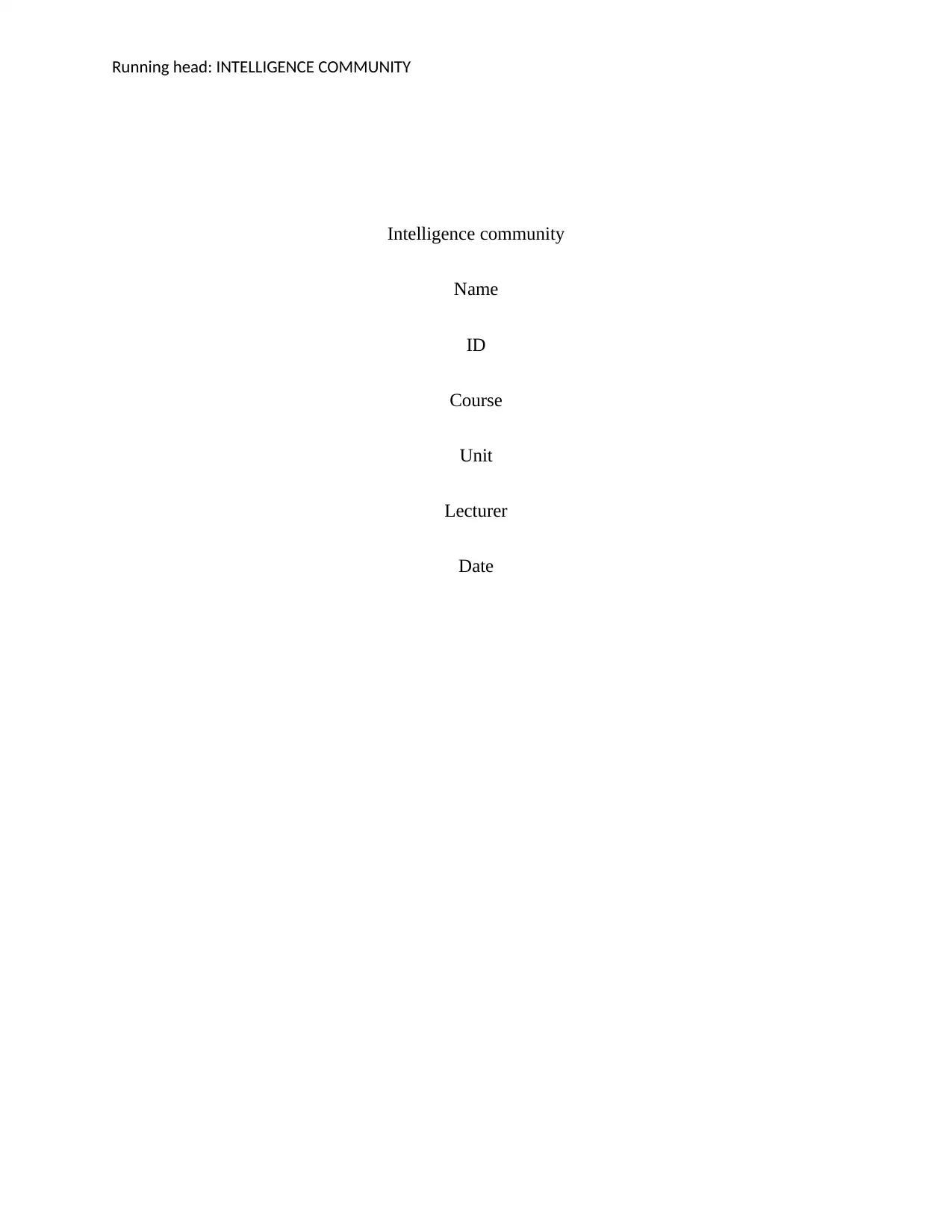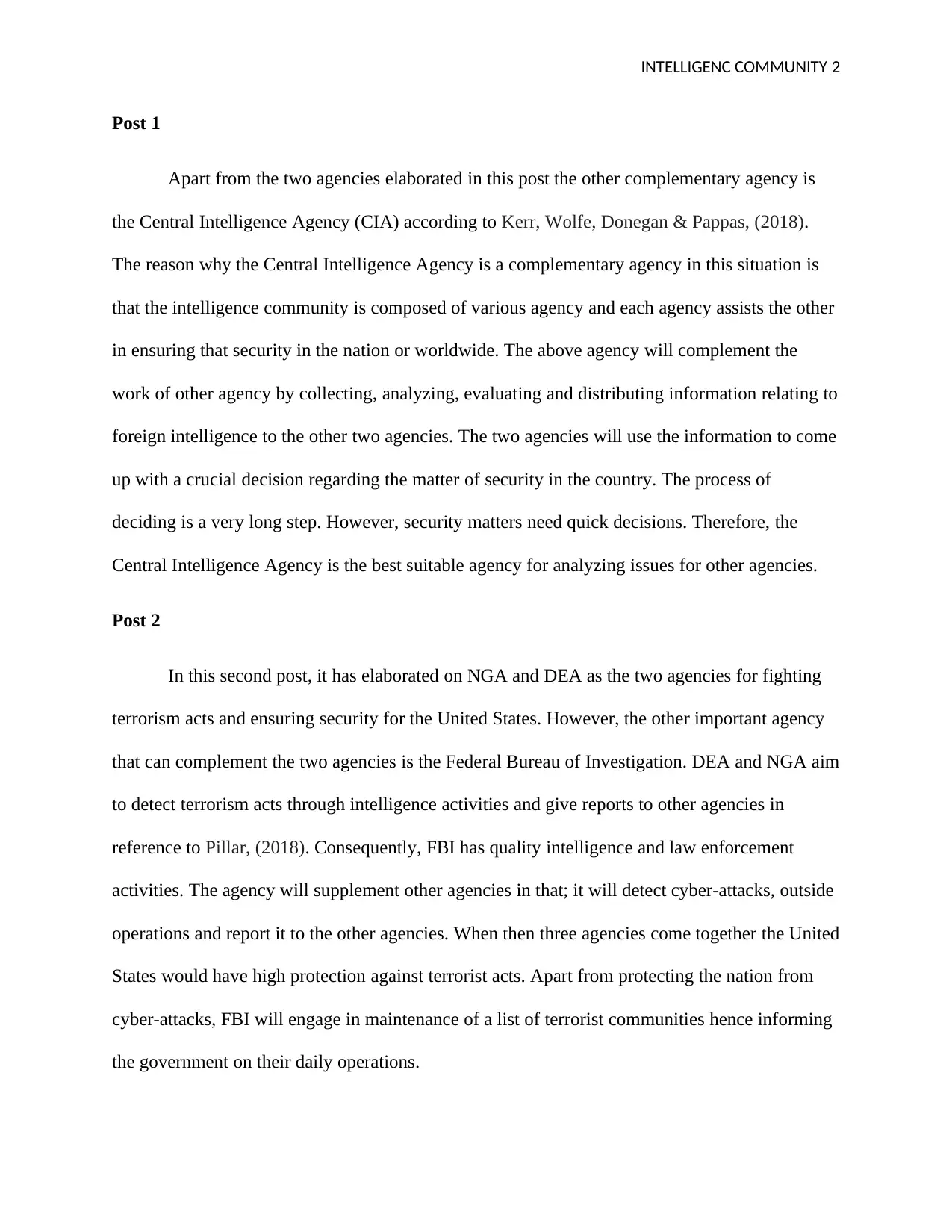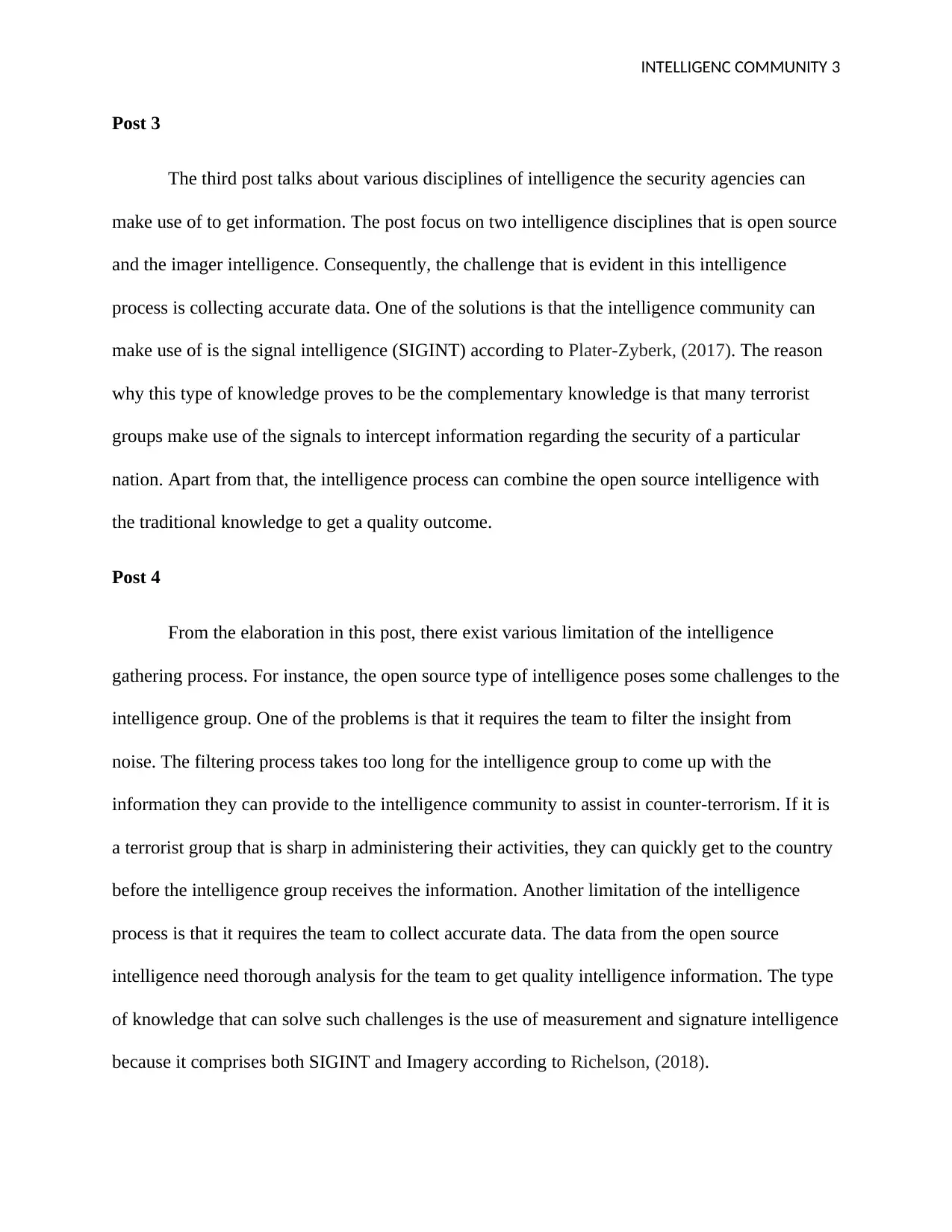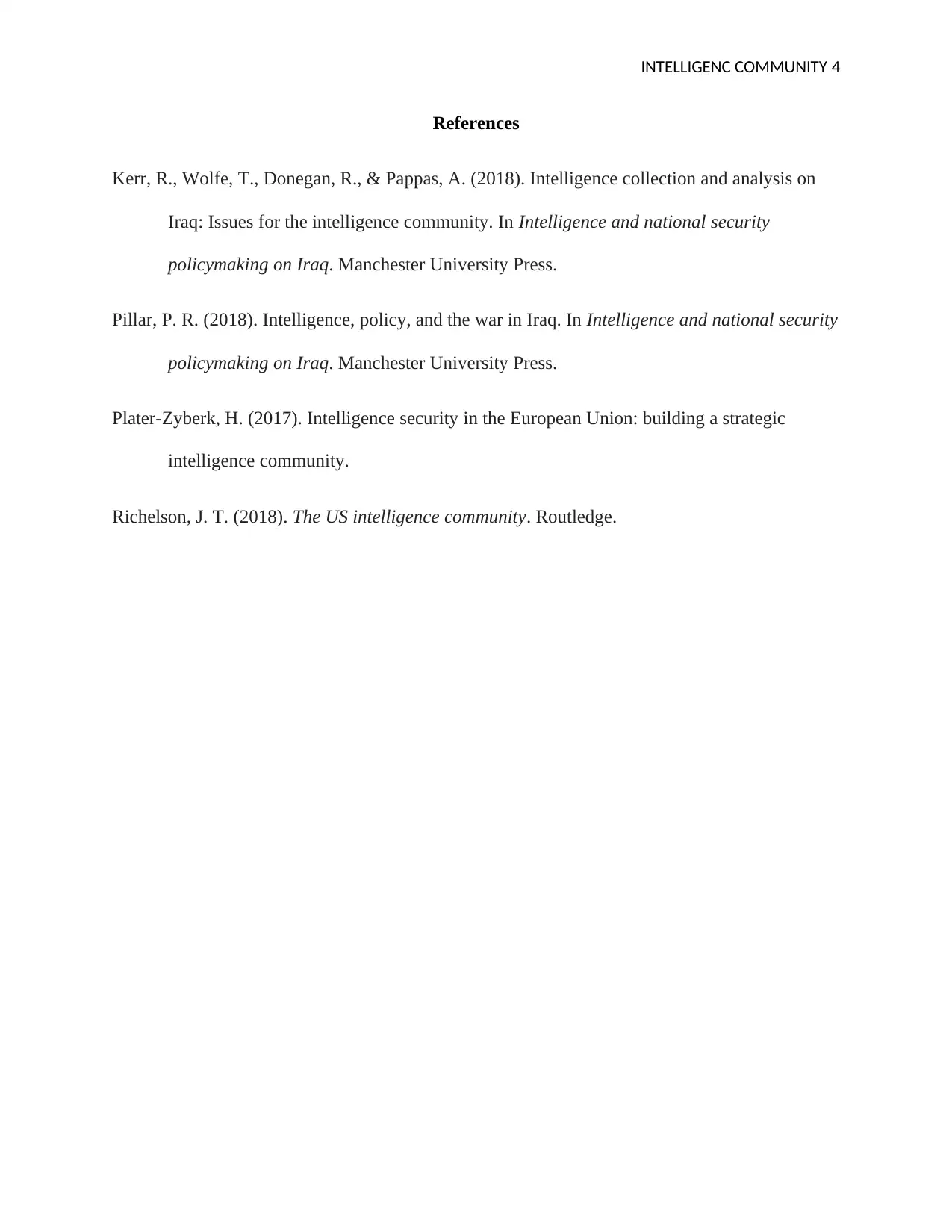Intelligence Community: Assessing Complementary Agency Contributions
VerifiedAdded on 2023/06/03
|4
|773
|374
Discussion Board Post
AI Summary
This assignment analyzes the U.S. Intelligence Community, focusing on the roles of the National Security Agency (NSA), the Drug Enforcement Administration (DEA), the Central Intelligence Agency (CIA), and the Federal Bureau of Investigation (FBI). The author discusses how these agencies complement each other in collecting, analyzing, and distributing intelligence to combat terrorism and ensure national security. The assignment explores different intelligence disciplines, such as open-source intelligence and signal intelligence (SIGINT), and addresses the challenges in gathering accurate data and the limitations of the intelligence-gathering process, including filtering information and data analysis. The author proposes solutions such as combining open-source intelligence with traditional knowledge and the use of measurement and signature intelligence to overcome these challenges. The discussion highlights the importance of quick decision-making in security matters and the need for agencies to work together effectively.
1 out of 4







![[object Object]](/_next/static/media/star-bottom.7253800d.svg)